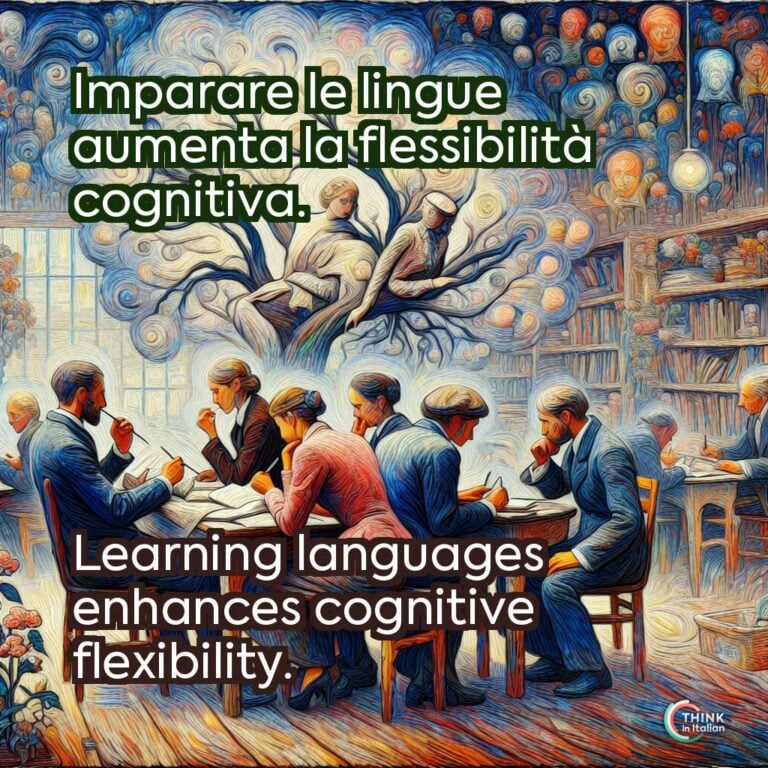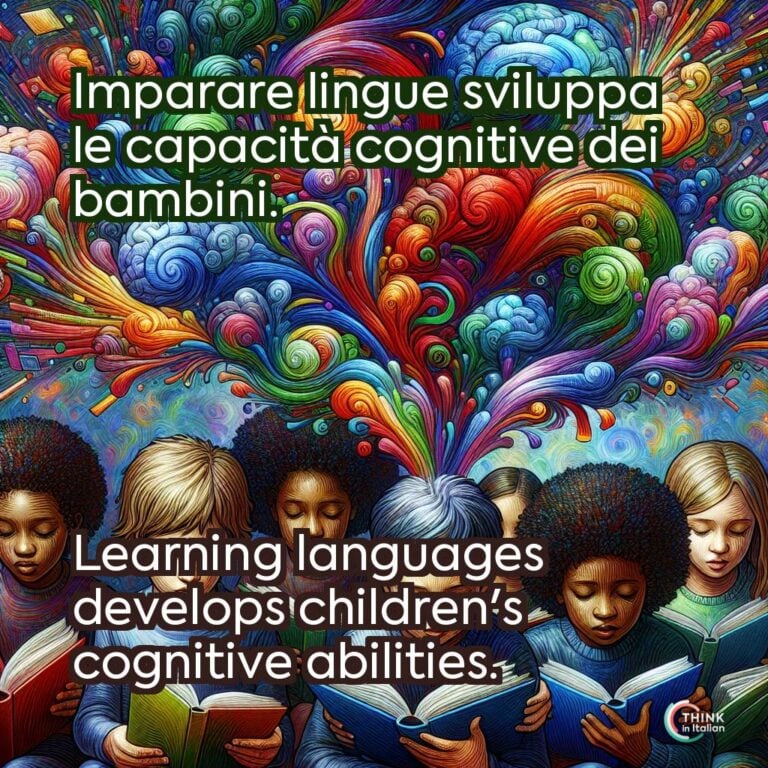Brain Benefits of Learning Languages
Language Learning as an Inclusive Activity
As a tutor of Italian to foreigners, I have noticed that most of my student learn a foreign language because they can afford to do so, therefore engaging in a niche activity dedicated to those who have enough money and time to expand on personal hobbies.
However, I believe that language learning should be seen as an enriching activity that should be performed by anyone.
In the last decade, sports and meditation – just to mention a couple of activities – have gathered collective attention for their scientifically proven positive impacts on brain and neurological pathways.
There are now always more people who actively decide to include them in their daily lives for wealth improvement. For me, language learning should be treated equally.
In fact, research has extensively shown that being able to speak multiple languages positively affects cognitive development, particularly areas like problem-solving, multitasking, and memory. These skills are crucial to adapt to new circumstances and effectively manage linguistic and cultural challenges.
I do not have a good memory, but I noticed that the techniques to memorize new vocabulary in a language are very useful to remember things in daily life as well. This is basically the way languages are helpful for other life skills in general.
The Importance of Early Language Learning
Although this article might be interpreted as a mere objective list of reasons as to why people should learn at least one foreign language, my aim is to actually educate parents about the importance of language learning in early childhood.
I will, therefore, explain its numerous benefits, which include enhanced cognitive development, improved problem-solving skills, and greater cultural awareness.
Critical Period Hypothesis
In general, evidence shows that the best age to learn a new language is from birth to around 7 years old. According to the “critical period” theory, this age span is a period during which children’s brains are particularly receptive to language learning thanks to their high levels of neuroplasticity.
The term “neuroplasticity” is used to indicate the ability of the brain to quickly form new neural connections, which is what allows children to learn new languages more easily compared to adults. Typically, the younger the child during their second language exposure, the more effective the language learning process.
What I find relevant is that acquiring a new language has been linked to improvements in attention, problem-solving skills, and the ability to multitask.
I find these cognitive benefits important to keep in mind when considering teaching a second language to children, because these are not limited to the language learning process itself. In fact, it also affects emotional intelligence and cultural awareness.
Multilinguals often display higher levels of empathy and cultural sensitivity, which suggests that the benefits of learning a foreign language extend beyond cognitive functions and encompass emotional and social well-being.
Interfaces of Multilingualism
Multilingualism and Theory of Mind
A specific cognitive ability enhanced by multilingualism I want to mention is Theory of Mind (ToM), as it is one of the main focuses of my Research Master’s thesis.
ToM is the cognitive ability to understand and attribute mental states, such as beliefs, desires, intentions, to oneself and others, which enables to recognize different perspectives.
Children typically develop ToM when they are 4-5 years old, namely when they begin understanding that others have thoughts and perspectives different from their own.
Multilingualism appears to accelerates this process, because navigating multiple languages requires attention to different viewpoints, and the need to adapt the language to the cultural context and the interlocutors, mirroring the mental processes involved in ToM.
Multilingualism and Empathy
Multilinguals have to pay attention to who knows which language and how words or phrases may be interpreted differently across cultures.
Research shows that, thanks to this skill, multilinguals generally have a better understanding of others’ perspectives and perform better on ToM tasks.
Thus, multilingualism not only broadens communicative competence but also strengthens cognitive empathy, directly contributing to the development of Theory of Mind by enhancing the ability to perceive and interpret the mental states of others.
Embracing Multilingual Education
In conclusion, multilingualism plays a critical role in enhancing children’s cognitive flexibility since a young age. For the reasons I exposed, I strongly advise incorporating multilingual education from an early age given its implications for cognitive development, educational strategies, and lifelong mental health.
In a multicultural world as the one we are living in, skills like cultural awareness and sensitivity are fundamental, both in working environments and in everyday life.
Multilingualism is surely the best and fastest way thanks to which individuals can be educated towards a more open mindset. Of course, if multilingualism is introduced to people from a very young age, this does not become something people have to learn, but it’ll be the normality.
References
Abdullaeva, G., & Ramazonova, M. (2024). The Impact of Language Learning on Brain Development. Development and innovations in science, 3(5), 116-123.
Alsaedi, N. (2023). Delayed exposure to second language acquisition: The robustness of critical period hypothesis and the limitations of the plasticity theory. Theory and Practice in Language Studies, 13(12), 3149-3156.
Alshewiter, K. M., Khasawneh, A. J., & Khasawneh, M. A. S. (2024). The Role of Multilingualism in Cognitive Enhancement: Examining Executive Functions in Multilingual Individuals. Migration Letters, 21(S2), 469-478.
Gervain, J. (2015). Plasticity in early language acquisition: the effects of prenatal and early childhood experience. Current opinion in neurobiology, 35, 13-20.
Ihle, A., Oris, M., Fagot, D., & Kliegel, M. (2016). The relation of the number of languages spoken to performance in different cognitive abilities in old age. Journal of Clinical and Experimental Neuropsychology, 38(10), 1103-1114.
Larson-Hall, J. (2008). Weighing the benefits of studying a foreign language at a younger starting age in a minimal input situation. Second Language Research, 24(1), 35-63.
Snow, C. (2014). Relevance of the notion of a critical period to language acquisition. In Sensitive periods in development (183-209). Psychology Press.
Vanhove, J. (2013). The critical period hypothesis in second language acquisition: A statistical critique and a reanalysis. PloS one, 8(7).








